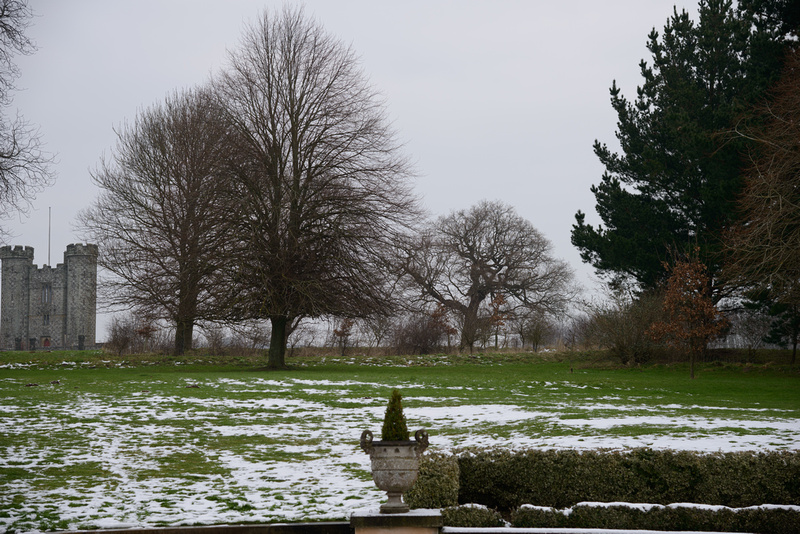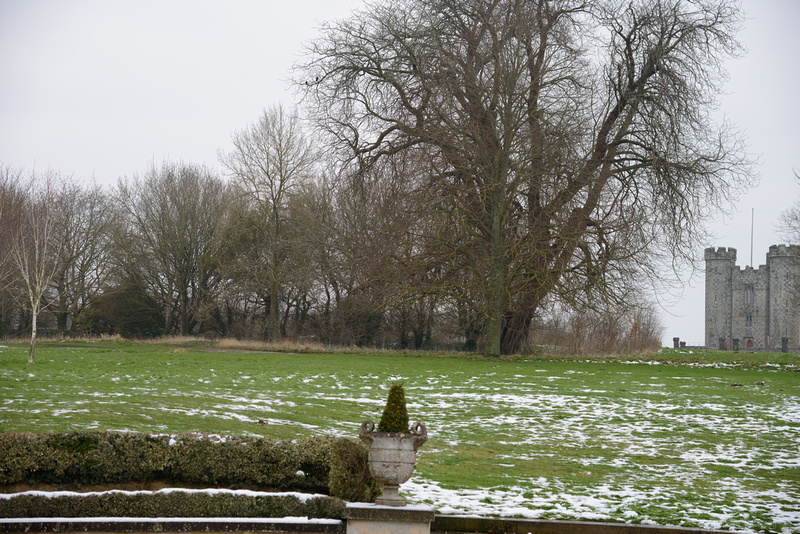Caveat EmptorHigh-end camera gear is expensive so, when making a decision to buy it, there are further questions to ask beyond 'how does the image quality compare to other peer-group equipment' and 'what does it cost?' Prime among these are:
There are no surveys (that I know of) to give us a market-wide answer to these questions so most of us have to rely heavily on anecdotal evidence alone and, online at least, there is often a suspicion that some of the 'real user experience' anecdotes, both positive and negative, are the work of shills. Would-be purchasers are wise to raid websites like Lensrentals and Reikan for something more data-rich than the merely anecdotal but even those sites are keen to express the limitations of their data sets and to add disclaimers relating to methodology etc. We may have a sense that one brand or another is going through a rough patch, has released a problem camera or lens or simply doesn't value QC highly enough but we never have a big enough sample to prove it. In other words, some of the most important questions we need answered before we buy are simply unanswerable. Suck it, if you dare, and see... My own personal experiences have been that Canon gear rarely 'unboxes unfit': I have returned one Canon P&S in all my years, and never a 'proper' camera or lens, and I have had quite a few. Leica has the occasional issue and their repairs can be slow, since they generally have to return to Germany, but the quality of service and repair is impeccable. I've had no real problems with Sony (but I've had far less Sony kit) and I had one, immediately rectified dud with Phase One - and I mean immediate, no questions asked. My experiences with Nikon have been, ahem, let's just say "less happy". I made a major system switch last year from both Canon and Phase One into Nikon, tempted by the D800. Anyone who has read my reviews will know that I rate that camera, and some of the lenses available for it, very highly. But this quality of imaging ability has been somewhat overshadowed by my experiences of quality control and service. Now, I would be the first to say that my own experience cannot be regarded as statistically significant so I am going to share an ongoing case with you as an example not of any claimed systemic problem at Nikon but as an example of what I did wrong and what I strongly advise others to do correctly. Itching to get my hands on a D800 and E after their announcement last year, I ordered some lenses in advance. My reasoning was that popular lenses would fall into short supply if the camera proved to be a hit and in this I was right. So I consulted Nikon's Technical Guide to the camera and was very pleased to see, in the list of recommended lenses to use for 'enhanced sharpness', the 24-120mm F4 zoom. A wide-to-short-tele zoom is very useful to me: I travel a lot and whilst I fully understand the need for good primes, which I also carry, the flexibility of this focal length range is attractive. So I duly ordered a copy but it arrived more than 30 days before the first of my bodies. To be frank, even if it hadn't, the problems with it would have taken a while to surface: I was learning an entire new system and, with two bodies and many lenses, it was always likely that I'd miss something. As indeed I did. Readers of my multipart review of the 24-120 will know that I find it to be a very useful and surprisingly good lens but that I noted a weakness on the right hand side of shots taken from around 35mm upwards on my copy. I reported, in my review, opinions of the lens that assumed that 'when I got it fixed' I would think it an important part of my kit. And there is the rub. I will not bore you with the details in depth but the lens has now been back to Nikon several times, most recently accompanied by my remaining D800E body, and the upshot is that though I am able to demonstrate to my own satisfaction (and I have sanity-checked the results with others) that the lens+body combination produce a soft right hand side very consistently at many focal lengths, Nikon's UK service department - the very Head thereof, in fact - insists that there is nothing wrong with the results at all. They offered, grudgingly, a replacement camera it is true - but the offer came with the admonition that there was 'no point since there's nothing wrong with what you have.' They didn't offer a replacement lens, possibly because an NPS loaner they sent me showed a similar problem and it is still not clear whether the body or the lens is at fault. They did helpfully note that high resolution sensors are demanding and that I might want to read the above-linked technical guide. In other words, they failed to gauge my level of experience and they patronised me. Oh, and they added that the sample images I had uploaded to a web page for their review hadn't been looked at because their technicians 'can't access the internet'. Tip: when dealing with Nikon, make sure you still own a CD burner, though many computers these days ship without them. Regardless, their investigations showed the performance of my equipment to be 'within spec'. In fact they insist that there is nothing wrong at all. Now as far as I am concerned there clearly is something less than acceptable with my gear. Of course the weasel words here are 'within spec.' So let's break this down into some possibilities:
Of these, it is clearly the last that is most cost-saving to any manufacturer in the short run and most likely to compromise their brand in the long run. There are several third-party lens manufacturers at the moment dragging their QC reputations uphill very effectively. Sony is starting to breath threateningly down the necks of the Big Two. So any manufacturer risks commercial loss if it allows 6) above to rule their production lines and repair facilities. Anyhooo... there's certainly not a lot that I can do to affect the business strategy of a large company. But what we can all do, what I most certainly should have done, is not to assume that a manufacturer will agree with me on the threshold of 'within spec' versus 'faulty'. And the only way to avoid that situation is to test everything, thoroughly, within whatever return window is legal in your own country. For me personally (and please vary your own approach according to your own trusted sources: maybe I really am too fussy or have unrealistic expectations) if I lived in a country with no legal right to return for full refund for at least a week or two, I would not buy Nikon for the foreseeable future. My definition of acceptable performance certainly seems to differ from that of their head UK repair technician. As it is, and to mis-quote Macbeth; " I am in Nikon Stepped in so far that, should I wade no more,
Returning were as tedious as go o'er.." In other words, I've got too much recently purchased Nikon system kit to even consider jumping ship now. I'm stuck. And that really is my fault for not being a more canny consumer.
Supplement I didn't want to swamp this piece with examples of what I believe to be wrong with my equipment but some people are bound to be curious as to whether my definition of 'not fit for purpose' matches their own, or whether I am an unrealistic perfectionist. Accordingly here are links to some example files that show the degree of right-hand blur I am talking about and which Nikon's chief of UK service says he cannot find. The first shot is simple: focus, best of several brackets, is on the Reikan target centre, which is aligned to exactly the same plane as the two box files left and right, at that height. Aperture is F5.6. Camera is on a Gitzo three series tripod with Arca Cube head and I used a three second delayed release. The full file is here but but I will post below sample crops from the far left and the far right of the frame. Guess which is which:
And now a rather different test: the camera was shot identically to the above description but this time it was focussed on the distant tower. The camera was then swung, with focus remaining untouched, so that the tower appears on far right and far left of the two subsequent frames. To me the results clearly indicate that the right hand side of the lens focusses significantly closer than the left, and that this is the source of the problem. What do you think? If you had these results at all focal lengths from 35mm upwards, would you think the lens faulty? If so, faulty enough to replace or expect a repair of? Please do let me know: I hope that I am a pragmatist and aware of the limitations of a lens with these design and price parameters but if my expectations are out of kilter with the rest of you, I'd like to know... (click the images for full-sized versions) |






